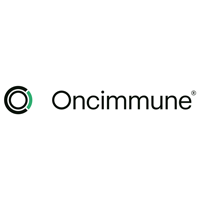Oncimmune Holdings PLC (LON:ONC), CEO Geoffrey Hamilton–Fairley caught up with DirectorsTalk to discuss it’s floatation on the AIM market, how the funds will be used and plans for expansion into global markets.
The company a leading early cancer detection company developing and commercialising its proprietary EarlyCDT® platform technology, yesterday announced the commencement of dealings in its Ordinary Shares on AIM, a market operated by the London Stock Exchange plc. Admission follows a successful Placing and Subscription raising gross proceeds of £11.0 million at a price of 130p per share. On Admission the Company had a market capitalisation of approximately £66.3 million.
Highlights
· Oncimmune has pioneered the development of autoantibody tests that have the potential to detect cancer up to four years earlier than other methods and can be applied to a very wide range of solid tumour types.
· Oncimmune’s first product, EarlyCDT®-Lung, was launched in 2012, as a CLIA test in the USA. Since then over 140,000 commercial tests have been sold.
· EarlyCDT®-Lung is being used in the largest ever randomised trial for the early detection of lung cancer using biomarkers, the National Health Service (NHS) Scotland ECLS study of 12,000 high-risk smokers.
· Oncimmune intends to develop an EarlyCDT®-Lung test ‘Kit’ and expand into new geographic markets, in particular Asia.
· Oncimmune also intends to develop EarlyCDT® tests for liver and ovarian cancer for launch within the next two years.
· The global market for cancer diagnostic products is forecast to grow from c.$100bn in 2014 to approximately $170bn in 2020. The underlying driver of growth in cancer diagnostics is the dramatic improvement in patient survival when cancers are detected at earlier stages.
Oncimmune Holdings PLC strategy is to exploit the commercial opportunity of the EarlyCDT® technology across multiple cancers. The Group aims to do this in three principal areas:
· Early detection of cancers;
· Risk assessment of lung nodules; and
· Companion diagnostics.
In addition to the survival benefits, the economic drivers for early cancer detection are compelling with the cost of early surgical intervention being significantly less than later stage treatments including chemotherapy.


